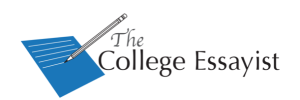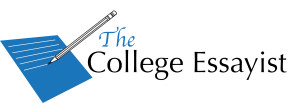This post was written by our friends AdmitSee.
The college application isn't just about how well you can talk about yourself. You also need someone who is willing to recommend and agree with the intellectual curiosity you've demonstrated in your personal statement, and the passion you've shown through your list of diverse extracurricular activities.
So, who do you ask for this letter of recommendation? Here are 3 tips to to help you narrow which teachers to ask, and how you should do it:
- Get Started Early.
This tips is two-fold. First, you should get to know your teachers well early on. For most, you'll likely befriend the teacher in the subject you're best at. If you're a little more introverted, then make sure you put in the effort to ask a few extra questions after class and ask for extra credit. You don't necessarily have to be their best friend - you just need to do something that will stand out to them.
Second, make sure you give your teachers plenty of time write your recommendations. In fact, you should let the teachers know once you've narrowed down the list of schools you'd like to apply to. Make sure they know what you're planning on majoring in, which schools you're applying to and all the deadlines. If you ask early enough, you should check-in with them a week or two later to make sure there's nothing else you need to provide them. Here's a tip from a freshman from Middlebury, who was also fearful about getting recommendations:
My biggest concern about my Junior year teachers was that none of them would know enough about me to write a good recommendation letter. When I realized this, I started making an effort to form a relationship with them. Asking for a book recommendation or coming in for help at lunch are some ways to increase contact with a teacher with whom you are not best buds. My best advice is just to ask a teacher if they would be willing to write a letter for you. It can be a daunting task, but if they feel like they do not have enough to say about you, they will decline or ask you to send them resumes or blurbs about yourself. I was pleasantly surprised to find that my teachers seemed enthusiastic about writing a letter for me. - >Naomi Cutler - Middlebury College
- Teachers Who Know You Academically
One of your recommendations should come from someone who knows you academically. This means they know what you're like in a classroom, how hardworking you are, and what you're like specifically as a student. If you're applying with the intent to study a specific major, it'll be even more beneficial to have a teacher in that subject field write your recommendation. Take it from this College Admit from AdmitSee:
"Most colleges require one or two teacher recommendations. I would suggest asking teachers whose classes you have both performed at a high level in and you have personal interest in. It helps to have a strong personal relationship with your teacher recommenders, too. Teachers are pretty cool people with some awesome insight - you can cultivate personal relationships with your teachers in a number of ways, especially by finding common ground in and outside of the classroom (I bonded with one of my recommenders over our love of offensive humor).
For additional recommenders, use your discretion. Not every college wants an additional recommender despite providing an option for you to include one. The whole point of an additional recommender is to provide context about you that was NOT included in your teacher recommendations. If you are confident that your additional recommendation will be able to do so, I suggest you include it! Always remember to thank your recommender, too - it's just the nice thing to do!" Mouse43 - Yale University
- Teachers Who Know You Personally
It's important to have teachers who can corroborate and elaborate on the grades you've gotten through high school, but it's also equally impactful to have someone who can write about who you are as a person. Whether it's a coach, or an independent research advisor, choose someone who you've spent a lot of time with that know you both as a student and as a person. That's exactly what this Georgetown AdmitSee user did when it came to her recommendations last year:
"My first piece of advice is to pick recommenders based on how well they know you, not necessarily how well you've done in their class! I picked one teacher that I had had both freshman and junior year, and then another one who was my advisor for a yearlong research project, because they both knew me well. I also sent an additional recommendation from one of my Constitution Team coaches, because I had spent a lot of time with her over the year on was on the team, and she could talk about me in a different academic context than school.
Another piece of advice is to try to ask your recommenders early before teachers get flooded with people asking them for recs. This way it will also take some of the pressure off of you because you will have that part of your recommendation done.
My last piece of advice is to look for recommenders who will have you fill out some type of form or questionnaire, giving them information to put in the letter. This shows that they are willing to put more effort into writing your letter, and this also lets you influence what they write in the letter and give them examples so they can be more specific. - Emmarhodes - Georgetown University "
Choosing where to go to college is an incredibly important decision. Make an informed choice with AdmitSee's first searchable database of 60,000+ successful college application files uploaded by college students.
About the Author:
Based inSan Francisco, we're a group of fun-loving nerds who created AdmitSee to bring much-needed transparency to the college application process. We're collectively the biggest supporters of Oreos, Hole in the Wall pookies, and Codenames: a social word game. Access AdmitSee's first searchable database of 60,000+ successful college application files to make an informed decision about where to apply.









